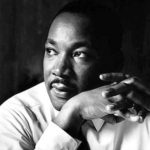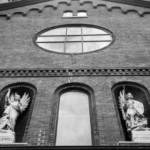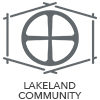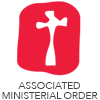Traditionally, the church has sung and chanted the Psalms since at least the 4th century BCE and of course David and the Jews sung the Psalms. “Psalms” means Songs. But the Psalms and the singing of the Psalms disappeared with the Reformation, because Luther did away with the monasteries. He didn’t want to endorse the Roman Catholic priestly class. He introduced the doctrine of “the priesthood of all believers” instead. Unfortunately the priesthood of all became the “least-hood of us all” – whatever the least of us did with our spiritual life became the order of the day. [BTW, I know some Protestants sing the Psalms. I am really picking on Evangelicals here.]
The Benedictine monks have continued to sing all 150 Psalms every month – or less. The Psalms express the full breadth of the human condition… we rejoice at the coming of the sun, we celebrate the harvest of plenty, we love, we hate, we wish our enemies dead! We sing and rejoice at the goodness of g-d. We cry out and yell towards g-d, “Where are you?” Our friends and family are sick or gone and we turn to g-d. We are alone. All this is just a smattering of the human condition expressed in the Psalms.
But here’s the most missed point by most Protestant Evangelicals: the Psalms are not meant to be private individual prayers. They were written to be sung in community. The monks got it right – even if they got stuck in Gregorian Chant – which I now think is pretty useful. Actually the strange old sounding tunes of the monks are extremely important because they keep the Psalms “singable” as prayers. The simple tunes keep the pray-ers humble – no one stands out. The monks need each other to pray. What a concept: Christians needing Christians to pray. Simon Chan says “one becomes a practicing Christian by practicing prayer.” (Spiritual Theology, 127)
When the Protestant Reformation centered the Christian faith on justification by faith alone (how we are saved by grace), it led to some mistakes that might be just as big of a error as “salvation by works.”
Today’s Evangelicals are so focused on the letters of Paul. The monks are focused on the Psalms. Evangelicals replaced Spirituality with Apologetics. Apologetics seeks to purge wrong belief rather than Catholic spirituality’s purging of sin as moral pollutant. The Reformation speaks of a broken relationship between g-d and humans. I wholly embrace this Reformation’s Relational Reconciliation model of atonement (though it should be said the Reformation emphasized the Substitutionary Atonement model more so – Christ took our place on the cross as atoning sacrifice).
The Laity replaced the Priests. The Commoner replaced the Monk. The Letters of Paul replaced the Prayers of the Heart, the Psalms. And Apologetics replaced Spirituality.
Want an interesting discussion? Try and discuss just what is the Evangelical doctrine of Spirituality? After you get past “have a private quiet time” and “listen and sing along with some good worship tunes” it gets thin real quick. No sacramental theology (or practice hardly!), no Virtues (what is prudence, or temperance?), no habitus or askesis (spiritual disciplines), no rhythm to the sunrise to sunset and the nighttime, no theology of work – all we are is just HEADS full of knowledge!
Where are the Pray-ers? The Psalms await us. Spirituality continues to rest on our willing obedience to surrender to Jesus. And folks, studying apologetics with our head ensures we stay in control – of everything! In control of those who disagree with us, in control of the argument, the media, those other churches, the cults – and in control of our minds. Again, we continue to break the first commandment: “Thou shall have no other gods before me.”
May we return to the Psalms and allow g-d to come unbidden – and we raise our voices and worship g-d.







